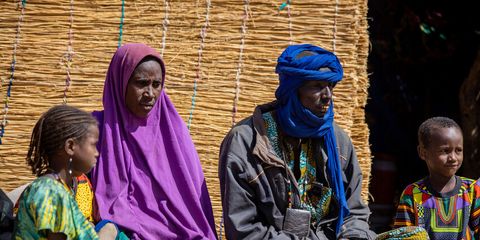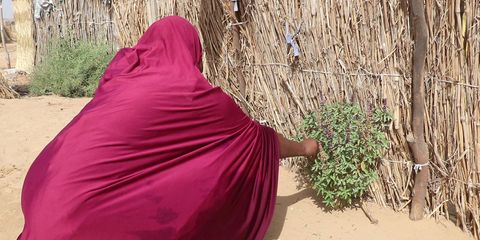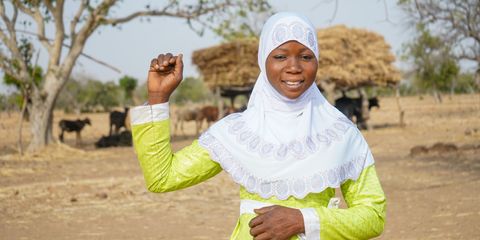In hunger affected Tillaberi region, children enjoy gardening at school. Some of them even use their skills to start their own gardens at home.
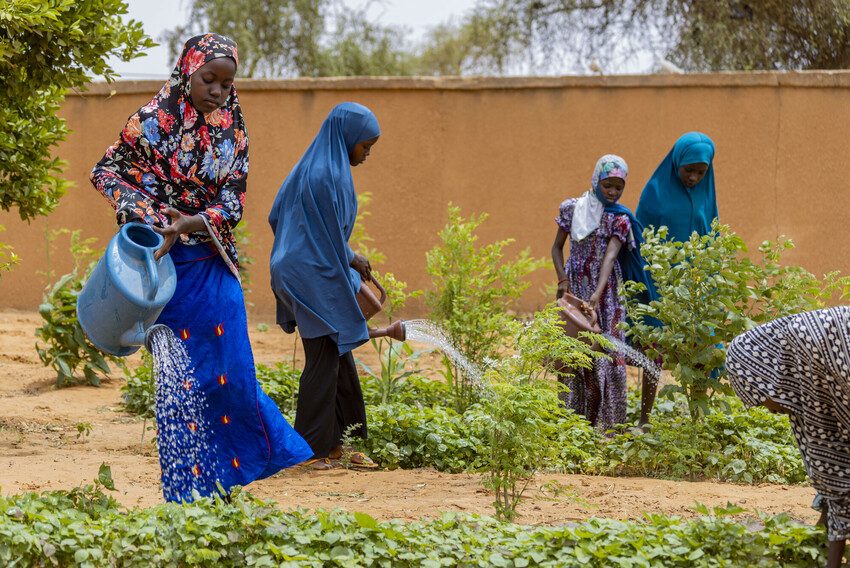
Ashraf, 11, is busy watering the plants in her school garden. Pumpkins and lemon trees thrive alongside moringa, sorrel and manioc, some of the traditional plant species of the Tillaberi region, in western Niger.
Ashraf is a keen member of her school gardening club. “I enjoy looking after the garden because it has allowed me to make more friends and it has taught me how to keep a garden. It also motivated me to make my own garden at home. I planted moringa, beans and chilli. There are plants here that I don’t eat at home and that are not found in my region” she says.
“Through gardening, I have learnt to love agriculture and I can understand my lessons better.”
Ashraf, member of the school gardening club
Children fed and educated
Hunger hinders learning. Children are unable to concentrate fully on an empty stomach and it’s common for families in this situation to take their children out of school so they can work. This is often the family’s only option if they want everyone to eat that day.
In several schools, the children and teachers were provided with seeds and gardening tools and taught how to grow and produce their own food. The agricultural and nutrition skills the students are learning in the gardens are essential and mean the teachers can introduce new concepts and help the children develop practical skills.
“Thanks to the school garden, I learnt that moringa is a nutritious plant. I love sorrel but at home we only eat moringa, grown from my garden. My parents gave me a hose so that I could water my garden. I tend to it every day when I get home from school. When I am away, my elder brother takes care of it,” shares Ashraf.
Seeds of change: school gardening clubs in Burkina Faso
Children at school gardening clubs in Burkina Faso are fed, safe, educated – and happily green-fingered – amid conflict and a devastating hunger crisis.
The school gardens introduce children to sustainable farming methods that play an important role in food security. The different activities undertaken in the garden have taught the children how to grow a wide variety of vegetables and fruits, as well as the need to protect the environment and conserve the soil by making compost.
The fruit and vegetables grown in the garden are sold to buy learning materials for the school. “Last year we sold moringa at the school feast. The money raised enabled the headmaster to buy extra boxes of chalk because we didn’t have enough. Now we need a big pond to water the garden, a fence so that the sheep don’t get in and eat the plants, pens, notebooks and other school supplies,” explains Ashraf.
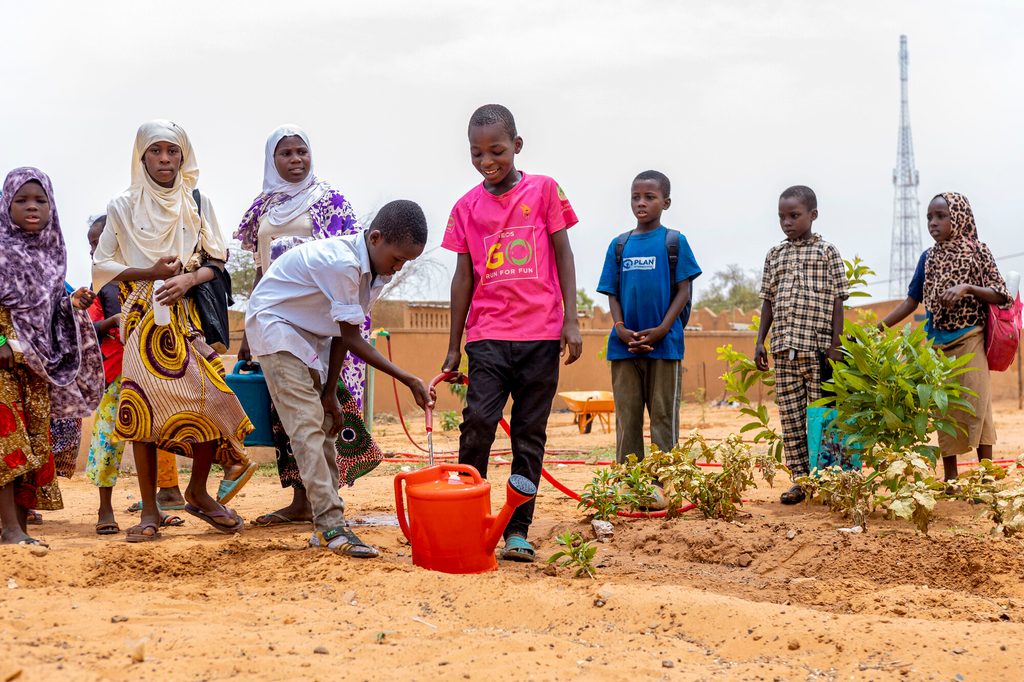
“Through gardening, I have learnt to love agriculture and I can understand my lessons better when we are taken to the garden to practice,” says Ashraf. “I have learnt new words and am more interested in the subjects we are being taught when I am in the garden.”
For students at the 7 schools we are supporting in 4 villages in the Tillaberi region, we hope that the long-lasting benefits of the gardens will support their health and wellness, and encourage the children to grow their own nutritious foods which will not only support their diets, but their families as well.
Due to insecurity and the impacts of the socio-political situation, at least 20% of households were facing food shortages in several regions including Tillaberi as of December 2023, leading to the highest level of food insecurity in the country according to the FEWS NET.
